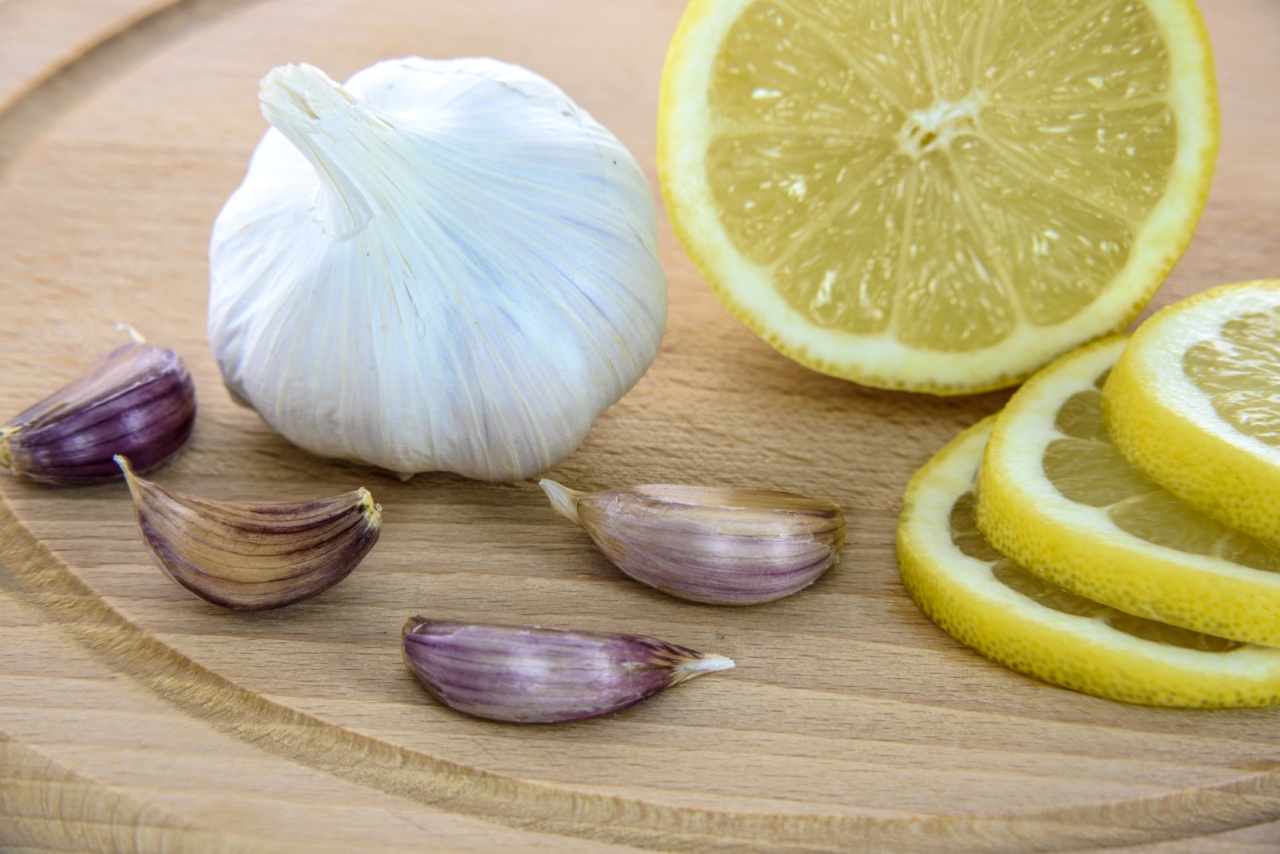Garlic, also known as Allium sativum, has been used for centuries as both a culinary ingredient and a medicinal herb. This aromatic bulb is not just a popular flavor enhancer in various cuisines, but it also holds a multitude of health benefits.
One of the most fascinating aspects of garlic is its potent antioxidant properties, which have shown great potential in fighting against cancer. In this article, we will delve into the role of garlic as nature’s antioxidant against cancer and explore the scientific evidence behind its therapeutic effects.
Understanding Antioxidants and Cancer
Before we dive deeper into the benefits of garlic, it is crucial to understand the concept of antioxidants and their connection to cancer. Oxidation is a natural process that occurs in our body as a result of various metabolic reactions.
During oxidation, unstable molecules called free radicals are formed, which can damage cells and their DNA. If left unchecked, this cellular damage can lead to the development of cancerous tumors.
Antioxidants, on the other hand, are compounds that help protect our cells from the damaging effects of free radicals.
They neutralize these unstable molecules, reducing the risk of DNA damage and potentially preventing the growth and spread of cancer cells.
The Power of Garlic’s Antioxidant Compounds
Garlic is a rich source of several beneficial compounds, including sulfur compounds, flavonoids, and organosulfur compounds.
These components contribute to garlic’s distinct aroma and taste, but they also play a vital role in its antioxidant properties.
Allicin: The Star Antioxidant Compound in Garlic
One of the key sulfur compounds found in garlic is allicin. When garlic cloves are crushed or chopped, an enzyme called alliinase activates, converting the precursor compound alliin into allicin.
Allicin is responsible for many of the health benefits associated with garlic, including its potent antioxidant and anti-cancer properties.
Several studies have demonstrated the ability of allicin to neutralize free radicals and protect cells against oxidative stress.
Its antioxidant activity has been linked to the prevention of mutagenesis, which is the process that leads to the formation of mutations and potentially cancerous cells.
Garlic and Its Anti-Cancer Effects
Research on garlic’s anti-carcinogenic properties has yielded promising results.
Studies conducted on various types of cancer cells, including breast, colon, lung, and prostate cancer, have shown that garlic extracts or compounds derived from garlic can inhibit the growth and induce the death of cancer cells.
One study published in the journal “Cancer Prevention Research” found that diallyl disulfide, another organosulfur compound found in garlic, reduced the size and number of breast cancer tumors in mice.
Additionally, garlic compounds have been found to suppress the growth of colon and prostate cancer cells, potentially slowing down the progression of these malignancies.
Garlic’s Protective Effects on DNA
Garlic’s antioxidant properties extend beyond merely scavenging free radicals. It also exerts protective effects on our DNA, reducing the risk of genotoxicity and mutations that can lead to cancer development.
This effect is mainly attributed to the organosulfur compounds present in garlic.
Researchers have found that garlic extracts can significantly enhance the activity of enzymes involved in DNA repair.
These enzymes play a crucial role in maintaining the integrity and stability of our genetic material, preventing errors and mutations that could trigger cancerous transformations.
Garlic as an Adjunct to Traditional Cancer Treatment
While garlic shows promising potential in preventing and combating cancer, it is essential to note that it should not be considered a standalone treatment for the disease.
However, its antioxidant and anti-cancer effects make it a valuable adjunct to traditional cancer treatment strategies.
Several studies have explored the synergistic effects of garlic and chemotherapy drugs.
They found that combining garlic extracts or compounds with certain chemotherapy medications can enhance the effectiveness of the treatment, potentially reducing the required dosage and minimizing side effects.
Considerations and Precautions
While garlic is generally safe for consumption and offers numerous health benefits, there are a few considerations and precautions to keep in mind:.
1. Allergies: Some individuals may experience allergic reactions to garlic, resulting in symptoms such as skin rashes, wheezing, or digestive issues. If you suspect an allergy, it is best to avoid garlic or consult with a healthcare professional.
2. Medication Interactions: Garlic supplements or high doses of garlic may interact with certain medications, including blood thinners and antiplatelet drugs. It is essential to speak with your healthcare provider if you are taking any medications.
3. Cooking Methods: The beneficial sulfur compounds in garlic can be deactivated or reduced with excessive cooking or processing. To retain the maximum health benefits, it is best to consume garlic raw or lightly cooked.
Incorporating Garlic Into Your Diet
Adding garlic to your diet is a delicious and practical way to harness its health benefits. Here are some suggestions for incorporating garlic into your meals:.
1. Raw: Add minced garlic to salads, salsas, or homemade dressings.
2. Roasted: Roasting garlic cloves brings out a sweet and nutty flavor. Use roasted garlic in spreads or as a topping for meats and vegetables.
3. Sauteed: Sauté minced garlic in olive oil for a flavorful base in various dishes, from stir-fries to pasta sauces.
4. Pickled: Fermented garlic, also known as black garlic, has a mild and slightly sweet taste. It can be enjoyed as a snack or used in recipes.
Remember to purchase fresh, high-quality garlic for optimal taste and health benefits.
Conclusion
Garlic’s reputation as a culinary herb has been accompanied by its significant medicinal value, specifically in the fight against cancer.
With its potent antioxidant properties and beneficial sulfur compounds, garlic offers a promising adjunct to conventional cancer treatments. While it is not a cure-all, incorporating garlic into a well-balanced diet can potentially contribute to reducing cancer risk and supporting overall health.





























